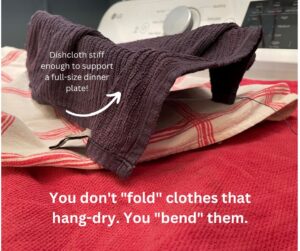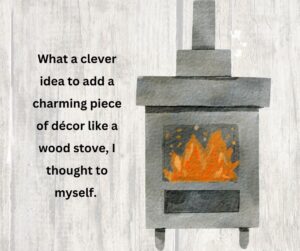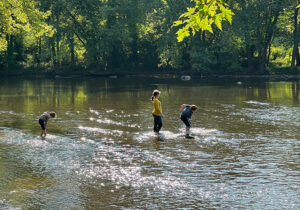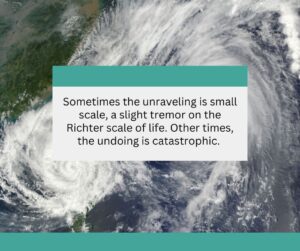We have been without a clothes dryer for approximately 24 days, 6 hours, 44 minutes and 22 seconds. But who’s counting?
When the dryer stopped working, we did what we always do when an appliance fails. I informed the husband. He then pulled the dryer out, checked the plug, flipped the breaker a few times, hit the dryer’s start button a half-dozen times, shoved the dryer back into place and matter-of-factly said, “Nothing lasts like it used to.”
Those are our home repair skills at full throttle.
I proceeded to step two, which is calling appliance repair people. Call after call, it was the same story—short staffed, customers back-logged and the onset of cold weather had generated a lot of furnace tune-up and repair calls.
The earliest anyone could get to us was three weeks out. I snapped it up like the last chocolate chip cookie on a warm baking sheet.
In the meantime, I considered rigging something up on the patio or in the backyard to dry laundry, but we like our neighbors. They aren’t the sort of people we’d traumatize with our personal things flapping in the wind.
I remembered a friend who had lived overseas talking about hang-drying laundry because most of the places they lived did not have clothes dryers. She would routinely hang lines in the living space and hang-dry laundry.
Our best hang-dry spots are in a bathroom that gets a lot of sun (the shower rod can hold 15 hangers) and the utility closet that houses the furnace and a recently purchased folding rack.
It is a workable system, providing you don’t mind bath towels that feel like steel wool.

I’m not saying hang-dry laundry is stiff, but we no longer fold clothes—we bend them.
We no longer need a scrub brush for food stuck on baking dishes. An air-dried dishcloth is rough enough to clean any baking dish and sand down the kitchen table we’ve been meaning to refinish.
The real bonus is that our complexions have never looked healthier. We have roses in our cheeks. You would, too, if you washed your face with a Brillo pad.
We may be wearing our clothes a day or two longer than usual. Who knows, maybe three or four. What I do know is that last night the husband’s jeans walked themselves to the laundry basket.
The appliance repair people were to arrive last week. They called 8 a.m. sharp on Monday – to say they couldn’t come. One tech injured a knee over the weekend, one has Covid and another is starting vacation.
I’d bury my head in the sleeve of my sweater and cry, but the sweater is so rough it’d probably scratch my face.
We rescheduled. We were fortunate enough to find someone who can come in two weeks.





